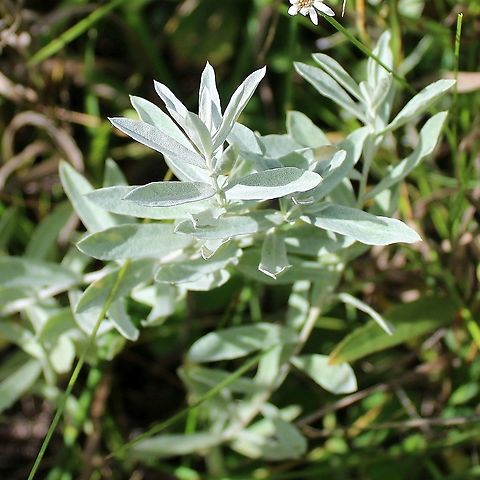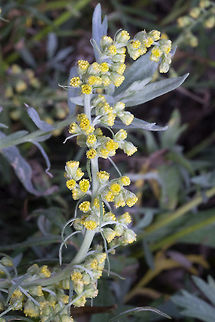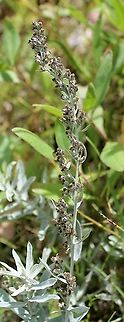
Appearance
''Artemisia ludoviciana'' is a rhizomatous perennial plant growing to heights between 0.33–1 metre. The stems bear linear leaves up to 11 centimeters long. The stems and foliage are covered in woolly gray or white hairs.The top of the stem is occupied by a narrow inflorescence of many nodding flower heads. Each small head is a cup of hairy phyllaries surrounding a center of yellowish disc florets and is about half a centimeter wide.
The fruit is a minute achene. This plant is used by many Native American groups for a variety of medicinal, veterinary, and ceremonial purposes.

Naming
Subspecies include:⤷ ''Artemisia ludoviciana'' subsp. ''albula'' D.D.Keck—deserts from California + Colorado to Chihuahua, Sonora, Baja California
⤷ ''Artemisia ludoviciana'' subsp. ''candicans'' D.D.Keck—Rocky Mountains + Cascade Range from Alberta + British Columbia to California + Colorado
⤷ ''Artemisia ludoviciana'' subsp. ''incompta'' D.D.Keck—mountains from Alberta + British Columbia to Mexico
⤷ ''Artemisia ludoviciana'' subsp. ''ludoviciana''—western + central United States + western Canada
⤷ ''Artemisia ludoviciana'' subsp. ''mexicana'' D.D.Keck—Mexico as far south as Puebla; United States as far north as Colorado + Missouri
⤷ ''Artemisia ludoviciana'' subsp. ''redolens'' D.D.Keck—Durango, Chihuahua, Arizona, New Mexico, Texas
⤷ ''Artemisia ludoviciana'' subsp. ''sulcata'' D.D.Keck—Chihuahua, Sonora, Arizona

Distribution
The plant is native to North America where it is widespread across most of the United States, Canada, and Mexico. Some botanists suggest that eastern United States populations have been introduced from the western and central part of the continent.References:
Some text fragments are auto parsed from Wikipedia.